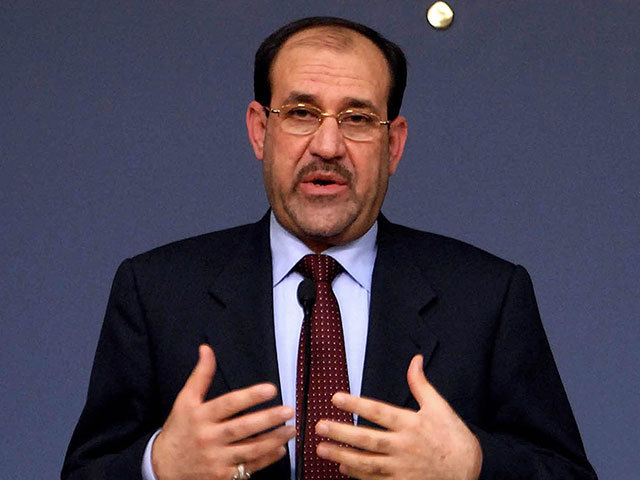
Iraq’s prime minister has called on his nation’s political blocs to close ranks in the face of Sunni militants – but gave no concrete promise of greater political inclusiveness for minority Sunnis.
Global leaders have pressed for the next Iraqi government to be more inclusive, seeking to draw Sunni support away from militants who this month swept over much of the country’s north.
But in his weekly address to the nation today, Nouri al-Maliki gave only a vague call for “all political forces to reconcile” with the principles of Iraq’s constitutional democracy.
He rejected forming a “national salvation” government, which he said would go against the results of parliament elections.
Al-Maliki’s coalition won the most seats in the April 30 vote – 92 of the 328-seat chamber.
Meanwhile, nearly half of the roughly 300 US military advisers and special operations forces expected to go to Iraq are now in Baghdad.
They have begun to assess Iraqi forces in the fight against the militants, the defence department said, as the US increased aid to the besieged country.
US Navy Rear Admiral John Kirby told reporters the troops in Baghdad include two teams of special forces and about 90 advisers, intelligence analysts, commandos and support personnel needed to set up a joint operations centre in the Iraqi capital.
Another four teams of special forces will arrive in the next few days, he added.
Those troops, added to the approximately 360 other US forces in and around the embassy in Baghdad to perform security, will bring the total US military presence in Iraq to about 560.
He also said the US is conducting up to 35 surveillance missions over Iraq daily to provide intelligence on the situation on the ground as Iraqi troops battle the aggressive and fast-moving insurgency.